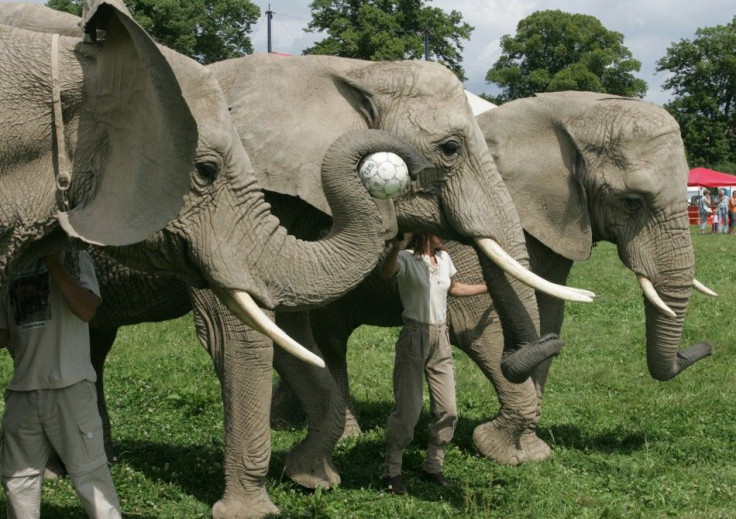Illegal Ivory Trade Wiping Out Africa’s Elephants

According to joint research by the Gabonese National Parks Agency (Agence Nationale des Parcs Nationaux, or ANPN), the World Wildlife Fund, or WWF, and the Wildlife Conservation Society, or WCS, poachers have killed more than 11,000 elephants in the small country since 2004 for their highly prized tusks.
The poaching, which campaigners describe as “out of control,“ is largely driven by the insatiable demand for ivory and jewelry products in East Asian markets, who are willing to pay exorbitant prices.
Gabon, long regarded as a safe haven for elephants, boasts about 40,000 forest elephants, more than one-half of Africa’s total population, BBC reported. Tusks of the creatures are particularly popular due to their pinkish hue and very hard surface.
Gabonese officials believe many of the poachers originate in neighboring Cameroon, where the local government has deployed helicopters and troops to protect its own vanishing elephant population.
The president’s office of Gabon warned that poachers are frequently armed with large-caliber rifles and chainsaws to remove elephant’s tusks. They have even run secret camps in the rainforest and are able to evade park guards. Corruption within Gabon’s political and military ranks also exacerbate the problem.
As such, anti-poaching efforts by the Gabonese government have largely failed.
"In an area like Minkebe [National Park in Gabon] which is about 30,000 square kilomters [19,000 miles], that's about the size of Belgium, without any roads. It is very difficult to track poachers here," Bas Huijbregts of the WWF said.
"[With] such a high-value commodity [ivory], it is corrupting governance on all levels -- there are checkpoints all over the place, but no one ever detects that ivory. When arrests are made, they are often obstructed by government people who have a stake in the trade as well."
Last summer, the Gabon government took the unprecedented step of burning more than five tons of ivory in its stockpile to send a message to poachers that it was serious about combating the illegal wildlife trade.
"Gabon has a policy of zero tolerance for wildlife crime, and we are putting in place the institutions and laws to ensure this policy is enforced," President Ali Bongo said at the time.
But one year later, as poaching has only intensified, conservationists fear for the future of the African elephant.
"If we do not turn the situation around quickly, the future of the elephant in Africa is doomed," Professor Lee White, executive secretary of ANPN, said. "These new results [of elephant killings] illustrate starkly just how dramatic the situation has become.
“This is an international problem, and Gabon is coming under siege by criminal gangs of hunters and crime syndicates that smuggle ivory to Asia. Unless there is a strong international reaction to stop wildlife crime, and ivory smuggling in particular, the forests of Gabon will no longer vibrate with the rumble of the forest elephant.”
From the demand side, WWF is seeking to end the ivory trade in Thailand.
In a petition that has already received 200,000 signatures, WWF stated: "Thailand is ... the biggest unregulated market for ivory in the world. Although it is against the law to sell ivory from African elephants in Thailand, ivory from domestic Thai elephants can be sold legally. As a result, massive quantities of illegal African ivory are being laundered through Thai shops."
The year 2011 was the worst year ever for illegal ivory harvesting -- about 44 tons were seized across the world, according to conservation group Traffic. Figures for 2012 are expected to be similar.
© Copyright IBTimes 2024. All rights reserved.




















